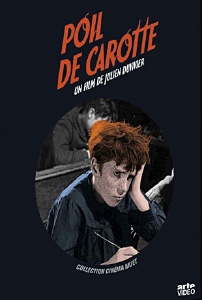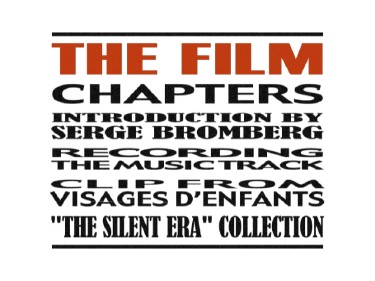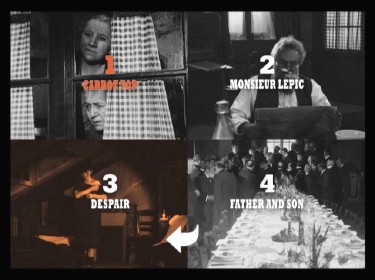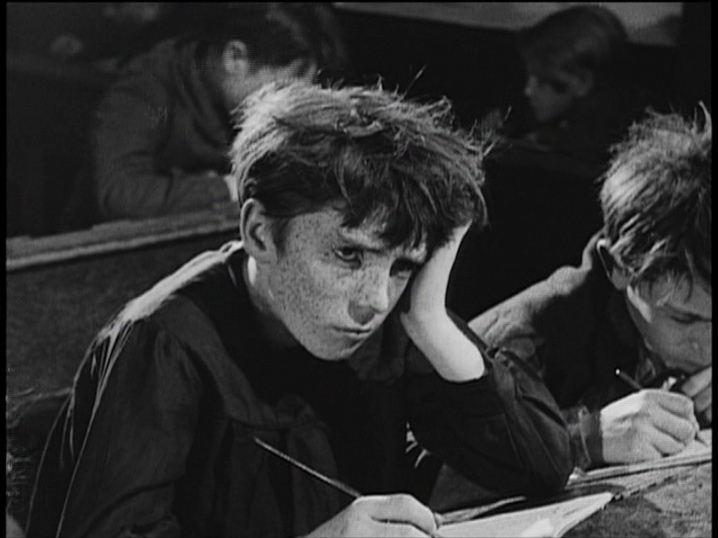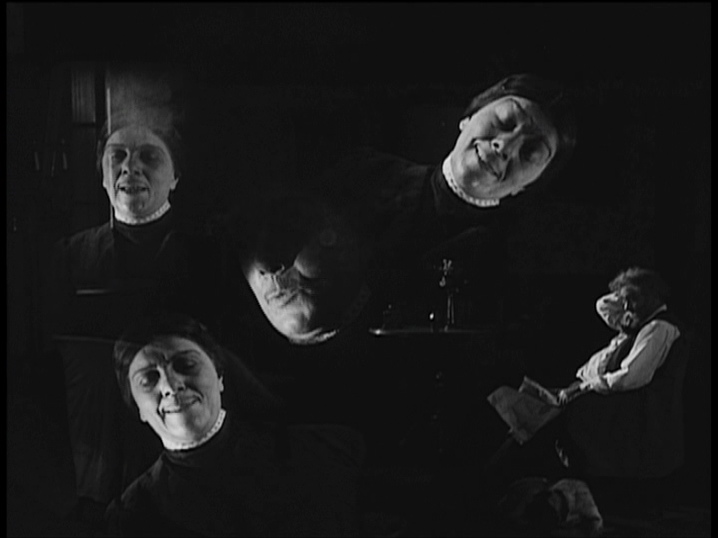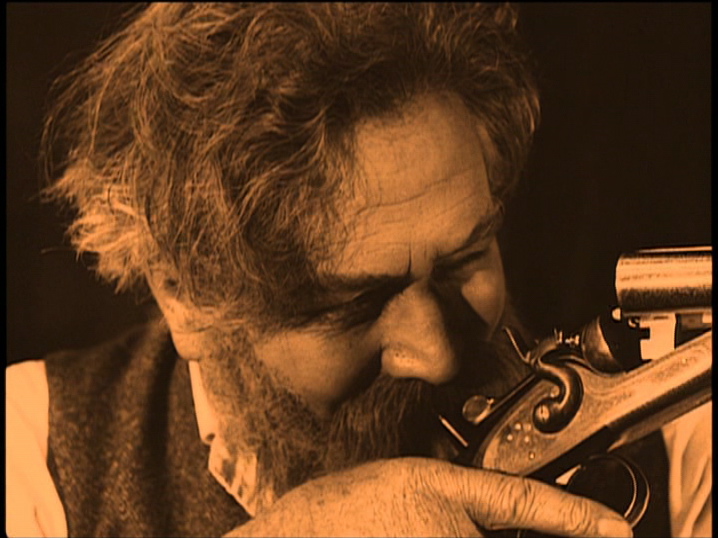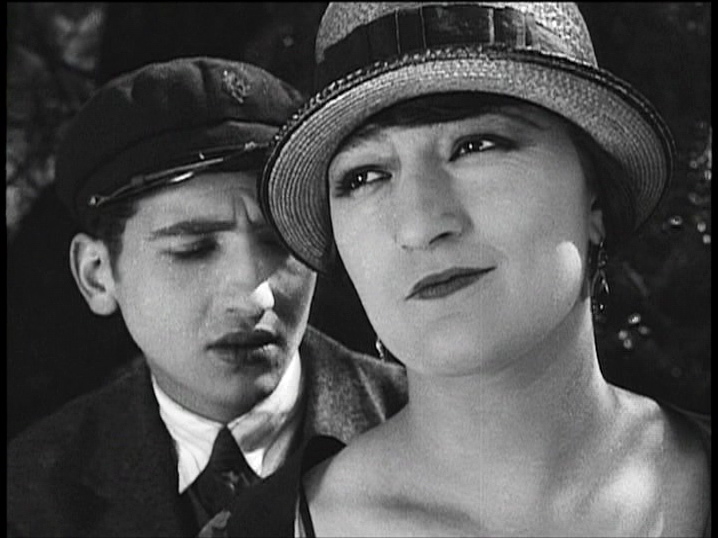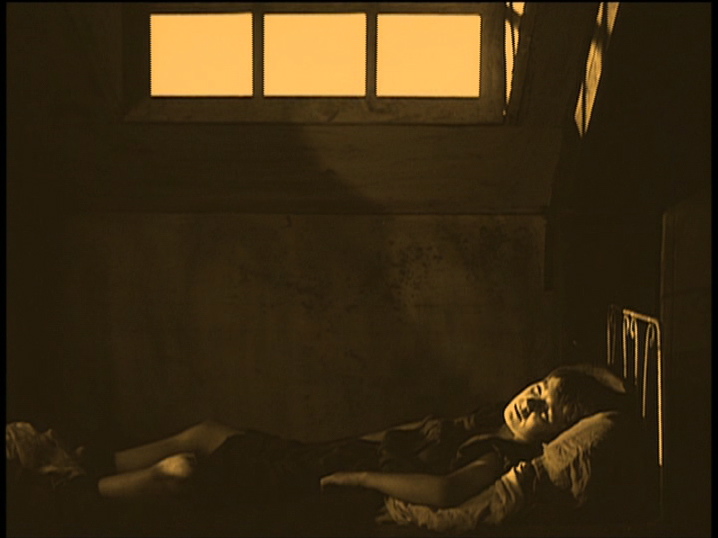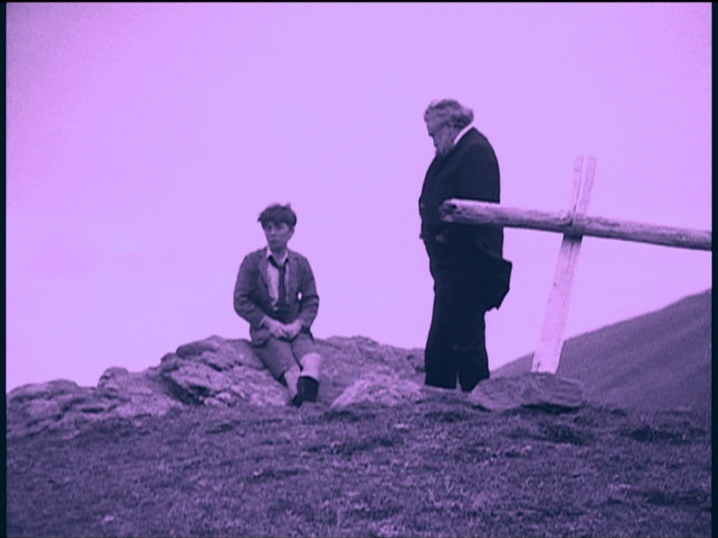![]()
![]()

![]()
![]()
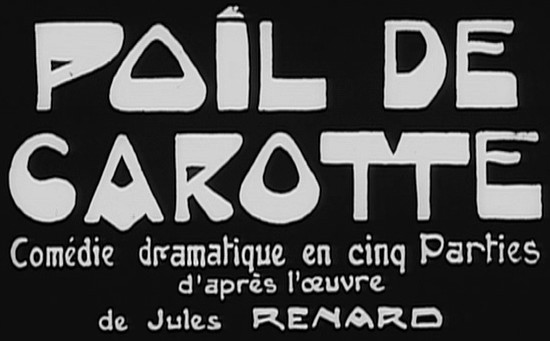
directed by Julien Duvivier
France 1925
|
"A family is a group of
people living under the same roof who cannot stand each
other." So writes young François Lepic, nicknamed Poil
de carotte (Carrot-top), in his school essay - and he
gets soundly rapped on the knuckles by his teacher for
it. But the poor boy is used to such abuse: at home his
mother takes a vicious delight in maltreating him, his
brother and sister torment him, and his father simply
ignores him. Only the maid understands him and foresees
the possible tragedy lying ahead. |
Theatrical Release: 26 February 1926
Reviews More Reviews DVD Reviews
DVD Review: Arte - Region 0 - NTSC
| DVD Box Cover |
|
CLICK to order from: |
| Distribution |
Arte Region 0 - NTSC |
|
| Runtime | 1:48:13 | |
| Video |
1.33:1 Original Aspect Ratio |
|
| Audio | Silent with music and French intertitles (Dolby 2.0) | |
| Subtitles | English, German, none | |
| Features |
Release Information: Studio: Arte Aspect Ratio:
Edition Details: Chapters 4 |
|
| Comments: |
The
Arte edition of Poil de carotte has been assembled from three
elements: a safety copy made by the Cinémathèque Française in 1985 from
a decomposing negative, and two nitrate prints, one of which had the
original tints. A new score has been written by Gabriel Thibaudeau and
is performed by l'Octuor de France.
Another very attractive feature of
this edition is the lively new soundtrack by Gabriel Thibaudeau. As he
explains in the short feature on the disc, each of the three main
characters is given a signature instrument: a clarinet for young Poil de
carotte, a violin for his appalling mother, and a double bass for the
father. From this premise Thibaudeau constructs an inventive score that
beautifully complements the mood and drama of the film. |
DVD Menus
|
|
|
Screen Captures
Subtitle sample
|
|
|
|
|
|
|
|
|
|
|
|
|
|
